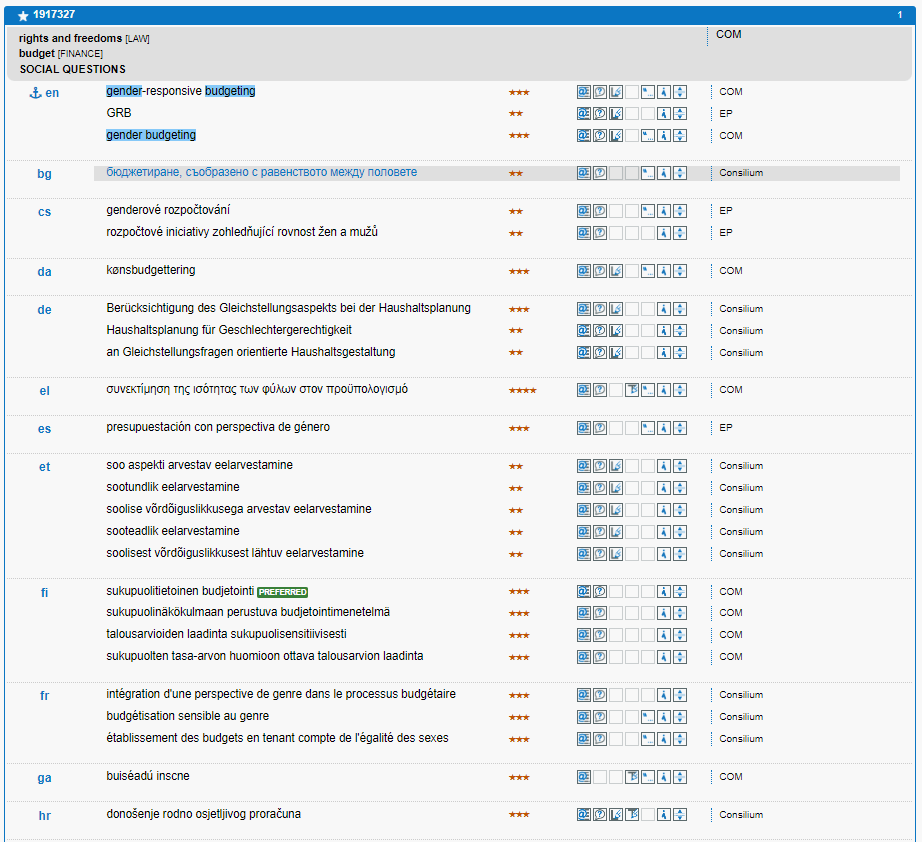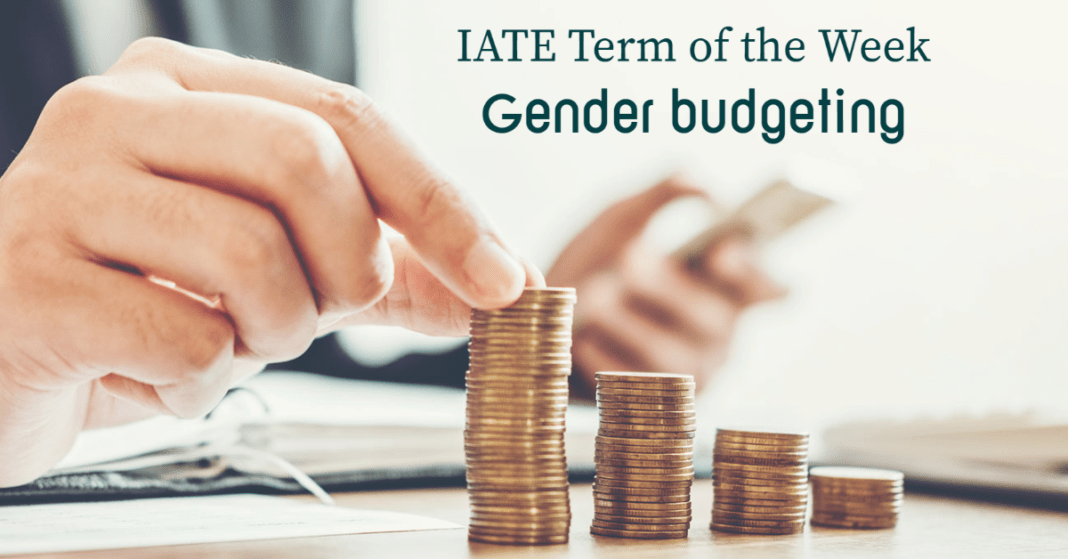Gender budgeting is an approach to public policy-making that seeks to identify, analyse, and address gender inequalities in the allocation of resources. It is based on the principle that governments have a responsibility to promote equality between men and women by ensuring the investment of economic resources for that purpose. Gender budgeting involves analysing how government budgets are allocated across different sectors or areas of spending in order to evaluate whether they are being used effectively for both genders to fulfil this function.
In IATE, the term is defined as “all planning, programming and budgeting that contributes to the advancement of gender equality and the fulfilment of women’s rights”.

The Council of Europe (2009) gave another interesting definition of the term:
“Gender budgeting is an application of gender mainstreaming in the budgetary process. It means a gender-based assessment of budgets, incorporating a gender perspective at all levels of the budgetary process and restructuring revenues and expenditures in order to promote gender equality”.
According to the World Bank, some examples of gender budgeting could include reallocating of education expenditure to promote measures to increase gender equality in access to primary education (e.g. scholarships), increasing the number of female extension staff or targeting of health resources according to the different illnesses of men and women.
The goal of gender budgeting is not only about achieving greater equality but also about improving overall efficiency within government budgets. It is important to highlight that gender budgeting is not about separate budgets for women and men nor about budgets divided equally. It is about determining where the needs of men and women are the same, and where they differ. Where the needs are different, allocations should be different.
Studies have also shown that gender budgeting is essential to boost economic growth (EIGE, 2017): “The evidence confirms that improvements to gender equality would generate up to 10.5 million additional jobs by 2050 and the EU employment rate would reach almost 80%. EU Gross Domestic Product (GDP) per capita would also be positively affected and could increase up to nearly 10% by 2050.”
In conclusion, gender budgeting has become increasingly important over time given growing awareness around issues related to gender inequality today. However, success relies heavily upon accurate data collection and analyses coupled with well thought out strategies tailored towards addressing each unique challenge faced so that all citizens regardless of their sex will benefit from any policy changes implemented under this framework in the future.
References
Gender budgeting and the Worl Bank Experience – World Bank (no date). Available at: https://web.worldbank.org/archive/website01035/WEB/IMAGES/WBEXPERI.PDF (Accessed: March 9, 2023).
Translation centre for the bodies of the EU (no date) IATE | Translation Centre For the Bodies of the EU. Available at: https://www.cdt.europa.eu/en/iate (Accessed: March 9, 2023).
The tracking system (2022) European Institute for Gender Equality. Available at: https://eige.europa.eu/gender-mainstreaming/toolkits/gender-budgeting/tracking-system (Accessed: March 9, 2023).
Institute for the equality of women and men. Available at: https://igvm-iefh.belgium.be/en (Accessed: March 9, 2023).
Gender budgeting in OECD countries. OECD. Available at: https://www.oecd.org/gender/Gender-Budgeting-in-OECD-countries.pdf (Accessed: March 9, 2023).
Conceptual references for gender-responsive budgeting (no date) UN Women – Headquarters. Available at: https://www.unwomen.org/en/digital-library/publications/2015/01/conceptual-references-budgets-with-a-gender-perspective#view (Accessed: March 9, 2023).
Gender equality boosts economic growth (2022) European Institute for Gender Equality. Available at: https://eige.europa.eu/news/gender-equality-boosts-economic-growth (Accessed: March 9, 2023).
Written by Laia Pérez Picó

Born in Alicante, Spain, Laia holds a Bachelor’s degree in Translation and Interpreting. She had the opportunity to study abroad in Canada and France thanks to different mobility programs. She also holds a Master’s degree in Institutional Translation at the University of Alicante and a second Master’s degree in Translation Technologies with an specialisation in Terminology at the University of Geneva.

